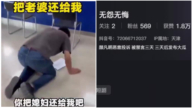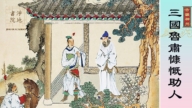【新唐人2014年02月06日讯】随着新兴社交平台在中国大陆的普及,智慧型手机聊天软体“微信”,与聊天网站“微博”之间的竞争,日渐激烈,两个平台各自拥有庞大的客户群体。但自从去年中共当局全面箝制网络言论,打击和抓捕了大量“微博大V”后,“微博”使用的人数迅速减少,“微信”开始后来者居上。一场关于“微信和微博哪一个言论更自由”的讨论就此展开。但有评论指出,在中共的专制体制下,无论是“微博”还是“微信”,都不会有真正意义上的“言论自由”。
英国《每日电讯报》日前公开一项调查显示,自从中共当局对“微博”采取了实名登记制、删贴封号、抓捕“大V”名人等一连串的打击之后,“微博”上的帖子数量骤减70%。原本作为大陆最自由和重要新闻及舆论来源的“微博”,已经日渐萧条,基本只剩下政府的宣传、企业的广告,以及名人的日常生活。
《每日电讯报》还指出,很多原本使用“微博”的人,转而开始使用微信。
大陆财经作家苏小和,1月30号在“微博”上发帖说:在言论自由的意义上,微博是广场效应,微信是饭局效应。微博的式微,让我们的广场再一次失守,…那些在微信上骂骂咧咧的人们,胆小又憋屈,自己吞下自己的口水。那些在微博里持续发声的人们,才是言论自由最后的守望者。
同时,也有很多网民表示支持苏小和的看法,认为相比“微信”,“微博”能起到更广泛的传播作用,但相对受到的监视和打压也就更加严厉。
前《浙江青年报》记者魏桢凌:“我觉得这个说法有一定道理,因为微博的话,它的效应肯定是比较大的,所以从政府来讲,中共肯定在这方面控制比微信更严厉。在微信这块,因为毕竟传播的效应没微博那么广,它基本上只限于圈子,比较小的这种圈子。基本上我们都是以群为一个单位,还没达到一种像微博涉及面那么广的效果。”
浙江异议作家陈树庆:“微信的话,只是针对一群人内部相互之间沟通信息,对外的辐射影响效果有限,但群里面相对保密,没有绝对安全的,(安全)程度稍微高一点。”
但有些网民更加愿意使用“微信”,认为“微信”的限制更小一些。
大陆社会活动家胡佳:“微信里边有个朋友圈功能,那个朋友圈现在已经类似于微博,而且比微博能够展示信息量更大,可以音频、链接视频、文字、图片,相当有份量的那些文章,被拷贝过来贴在朋友圈里,基本朋友是个私人交际,但是有些人的朋友圈可能多达上千名微信网友。微博现在受到严密的打击,删贴、删号,但是微信领域仍然还算是比较稳定、比较安宁的。”
不过大陆网民们不约而同的达成了一个共识,那就是,无论哪种交流平台,在现有体制下,都不会存在真正意义上的安全和言论自由。
魏桢凌:“ 没有一个自由体制、一个制度来保障言论自由,我认为都谈不上真正言论自由,就算你说有微信、微博发些牢骚是可以的,但真正要对这个社会起到一定促进作用,或者你的想法、你的观点能够被大家所了解,我觉得在中国根本远远达不到这一点的,这是显而易见的。”
陈树庆:“ 只要共产党它维护它的一党专政、独裁、特权既得利益的话,那肯定对民众的言论自由,不管哪一种工具,它都要采取一定限制措施,它如果对民众直接限制不行,那么它就对网络供应商施加压力。”
目前使用“微信”的人数已经超过5亿。而敢于在网络发声的人们预言,虽然“微博”日渐式微,“微信”如日中天,但随着“微信”影响力的日益扩大,中共当局迟早会像对待“微博”一般,对“微信”采取更加严厉的打压和攻击,因为它们恐惧一切潜在的可能“ 威胁”。
采访编辑/张天宇 后制/孙宁
Weibo Posts Drop By 70%: Will Weixin Replace It?
Social media continues to become
increasingly popular in China.
A smartphone chat application called Weixin is
intensively competing with the Weibo microblog.
Both social platforms have huge users groups.
Last year, the Chinese Communist Party (CCP)
intensified censorship of online expression.
It attacked and arrested many popular Weibo bloggers.
The number of Weibo users immediately reduced,
and Weixin became the alternative platform of choice.
A debate has now started over which of the two
platforms provides more freedom of expression.
Some comment that under the CCP dictatorship system,
neither Weibo nor Weixin has real freedom of expression.
The Daily Telegraph recently published a survey.
It indicated that since the CCP launched it’s real name
registry system for Weibo users, it has deleted and closed
many user accounts, and arresting well-known bloggers.
The number of posts on Weibo has reduced by 70%.
Weibo was at one time the most important and free
resource for news and public opinion, but is now shrinking.
Only CCP propaganda, business advertisements
and news about celebrities remains on the platform.
The Daily Telegraphy reported that many
Weibo users have now moved to using Weixin.
On January 30, Su Xiaohe, a financial writer
in Mainland China, posted messages on Weibo.
“From the perspective of freedom of expression,
imagine Weibo as a public space, such as a square.
Weixin is like being at a private banquet. Weakening
Weibo has caused public expression to fall again.
People who curse on Weixin are more timid,
and only bear the suffering in their hearts.
Those who continue to speak out on Weibo are
perhaps the real watchmen of freedom of speech."
Many netizens agree with Su Xiaohe.
They believe that comparing Weixin with Weibo,
information on the latter can spread far wider.
With this, however, it also receives further
monitoring, and more severe suppression.
Wei Zhenling, former reporter, Zhejiang Youth
Daily: “I think there is logic in saying this. Weibo
has more effect, so the regime controls it tightly.
Weixin’s effect is not as good as Weibo. It only
spreads information within specific, smaller circles.
Basically Weixin uses group as units,
and it spreads far less than Weibo."
Chen Shuqing, Zhejiang activist writer:
“Weixin spreads messages inside groups.
It has limited effect to spread messages externally.
However, Weixin can keep messages relatively
confidential within groups, but not absolutely safe.
The degree of confidentiality is a little higher."
Some netizens like to use Weixin more,
and believe Weixin has less restrictions.
Hu Jia, Mainland China activist:
“Weixin has a friends of a feather circle.
This friend circle is now almost similar as Weibo,
and it can display more information than Weibo.
It can circulate audio, video, text,
pictures and relatively important articles.
These can be copied to groups of friends,
and those friends are private contacts.
Some people have over a thousand Weixin friend
contacts. Weibo is now being severely suppressed.
Posts are being deleted and users’ accounts are being
closed, while Weixin is relatively stable and peaceful."
Netizens almost all agree that no matter
which platform, under the current regime,
there isn’t real freedom of expression.
Wei Zhenling: “Without a democratic system to protect
people’s freedom of expression, it is not real freedom.
You can complain on Weixin or Weibo,
but to really push forward the society;
to have your ideas and opinions acknowledged in public
is happening far less in Communist China. It is obvious."
Chen Shuqing: “As long as the CCP maintains
a one-party dictatorship, and privilege groups with
interests, and no matter which tool the public uses.
The regime will certainly use control
measures to restrict public expression.
If the CCP cannot directly control the public,
it will put pressure on the platform providers."
Weixin user numbers have reached over 500 million.
Some online commentators predict that as Weibo
weakens, and Weixin rises to become more influential,
the CCP will soon start severely attacking Weixin.
It will experience what Weibo has done,
because the CCP fears any potential “threat".
Interview & Edit/ZhangTianyu Post-Production/SunNing



























